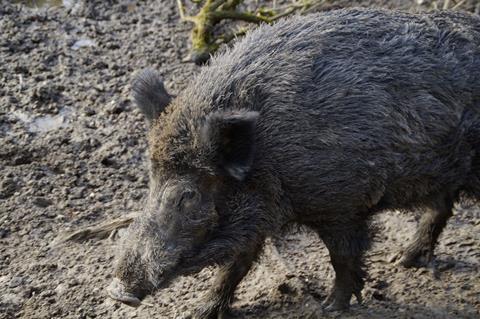The spread of African Swine Fever (ASF) has disrupted pork markets across the world, according to the latest analysis by Rabobank.
In the Q4 Pork Quarterly report, released this week, Christine McCracken, senior analyst – Animal Protein - said that the entire industry is “reassessing its vulnerabilities” as the virus continues to spread.

She added: “New ASF discoveries in Europe raise new concerns of more serious trade interruptions and the potential for greater herd losses.
“The difficulty in controlling the spread is likely to drive dislocations in supply, with potential for sizable shifts in trade flows in the months ahead.”
Over the last three months, the fever has spread to 12 Chinese provinces, an area home to more than half the country’s pig population. Passed through contaminated feed or exposure to infected animals, ASF has a near-100% fatality rate with no current vaccine.
An estimated 70,000 pigs have been culled so far in China and huge parts of the pig-producing areas remain on lockdown.
The report states that disruption across the pork market in China has been “significant” but that product shortages in other regions without production are experiencing “extreme price inflation”.
Impact across the EU
Rabobank reports that “tensions are high” after some 80 cases of the fever were found in feral pigs in Belgium mid-September adding: “A quarantine of the region and stepped-up efforts to eradicate potential ASF sources have thus far been successful”.
The analysis states that 16 countries have banned trade with Belgium in response, but neighbouring pork-producing countries have been largely unaffected.
Belgium contributes only 2.5% of EU pork exports, and trade restrictions are reported likely to have little-to-no impact.
Last month, Meat Management reported that the risk of swine fever entering the UK remained at “medium”. The risk was said to be dependent on the level of biosecurity on pig premises and was considered to be “low” while the situation was kept under review.
Oversupply overhang in the US
The research finds that “record protein supplies are weighing on prices, resulting in steep losses”.
However it says that the market rebound in recent weeks has curbed those losses and improved prospects for 2019.
It states that producers are focused on eliminating any risks of local ASF outbreaks.
Chinese exports help cushion the blow in Brazil
After months of losses, returns in Brazil have been reported as positive.
Stronger exports to China (+220% YOY) and Hong Kong have helped to stabilise prices, according to the report, and are expected to remain an important driver in 2019.
The report states: “Producers remain cautious, however, as key historic markets, including Russia, remain closed and the country remains heavily dependent on exports.”
Click here to download the full report
This story was originally published on a previous version of the Meat Management website and so there may be some missing images and formatting issues.















